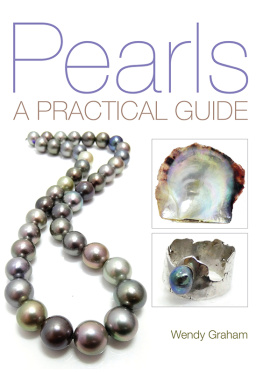First published in 2006 by
Kegan Paul Limited
UK: P.O. Box 256, London WC1B 3SW, England
Tel: 020 7580 5511 Fax: 020 7436 0899
E-Mail:
Internet: http://www.keganpaul.com
USA: 61 West 62nd Street, New York, NY 10023
Tel: (212) 459 0600 Fax: (212) 459 3678
Internet: http://www.columbia.edu/cu/cup
BAHRAIN:
Distributed by:
Marston Book Services Ltd
160 Milton Park
Abingdon
Oxfordshire OX14 4SD
United Kingdom
Tel: (01235) 465500 Fax: (01235) 465555
Email:
Columbia University Press
61 West 62nd Street, New York, NY 10023
Tel: (212) 459 0600 Fax: (212) 459 3678
Internet: http://www.columbia.edu/cu/cup
Kegan Paul, 2006
Printed in the United States
All rights reserved. No part of this book may be reprinted or reproduced or utilised in any form or by any electric, mechanical or other means, now known or hereafter invented, including photocopying or recording, or in any information storage or retrieval system, without permission in writing from the publishers.
ISBN-13: 978-0-7103-1202-0
ISBN-10: 0-7103-1202-4
British Library Cataloguing in Publication Data
A catalogue record for this book is available from the British Library.
Foreword
Abd el Hai is great:
he has conquered all men
from the White-Mans country
English, Italians, French,
peoples like the sea
immense and menacing;
like butter he floats
ever on the surface
of the storm-tossed water.
(Dankali song)
Djibouti in August The capital of French Somaliland, according to the guidebooks. Coaling station for eastern- and southern-bound liners. Twelve degrees above the Equator and one of the hottest spots on the globe, adds the experienced colonial.
On that particular August morning, Djibouti gave every sign of living up to its reputation. The Amboise, ten days out from Marseilles, dropped anchor at dawn in the outer harbor. We had steamed down the Red Sea with the wind behind usa constant fiery blast pelting us with sand and showers of locusts, piling up long, even swells that drove us forward in the airless heat, plunging with the dizzy regularity of a seesaw.
Djibouti came as a relief. For the majority of the passengers, government employees en route to Indo-China and the usual sprinkling of missionaries, it promised the air currents of the Indian Ocean, welcome in spite of the tricky monsoon. To the rest of us, it meant the high plateau of Abyssinia and a European climate, a days journey inland.
The abrupt silence of the engines, and the grinding clank of anchor chains, stirred even the limpest of the pajama-clad from their deck chairs. Damp and hollow-eyed, they hung above the rail, watching the land stream out to them in a bobbing procession propelled by steam, and motor, and paddle. Tugs towing coal barges, launches flying pennants of the Messageries, the Customs, and the Quarintine, manned by turbaned Somalis and bearing white-clad, helmeted Frenchmen. Rowboats, dugouts, and last of all a splashing school of swimmers, brown and black, as born to the water as a band of dolphins.
A scuffle on the swinging ladder. Confused cries and splashes. A voice shouting orders in a strange tongue. My neighbor at the rail, an officer of the French Colonial, translated. No one allowed on board who hasnt a vaccination scar! A chorus of protesting voices like an echo of the hubbub between decks rose in the passage behind us. Passengers besieged the matre dhtel, mustached and affable.
I am sorry, sorry, he repeated amiably. Quarantine allows nobody ashore but Djibouti passengers.
You are going to keep us here all day in the heat and coal-dust? panted a young Frenchwoman, impeccably rouged in spite of the early hour. Monsieur le matre dhtel, you are not gentil!
Tais-toi, Amlie, her husband broke in shortly. Do you want to catch the smallpox?
Smallpox, O Seigneur! the young Frenchwoman lifted terrified plump hands to her powdered cheeks and collapsed heavily in her deck chair.
When she has lived in the colonies, she will not be so impressionable, my neighbor commented grimly. Smallpox, and typhus, and cholera and the plague you live next door to them most of the time. One of them may get you in the end; but chances are they wont. He shrugged his shoulders philosophically. Quarantine is a necessity no doubt; but just the same, I would be glad for a cool drink on shore!
The sun shot over the horizon like a pale balloon. A fan-shaped coating of molten brass spread over the surface of the harbor. Above the distant cubes and arches of the town, heat waves quivered, transparent and liquid. The Amboise, all portholes shut, rolled gently on its anchor chains, while on either flank a busy army of black men poured coal into the bunkers to the rhythm of an interminable chant. From the barges a column of dust rose like smoke to the promenade deck where it spread and settled in a gritty crust on all things horizontalplanks, rails, deck chairs, sun helmets, pajamaswhile the thermometer climbed: 99, 100, 101.
Limp along the rail, the passengers for Sagon, Hanoi, and Abyssinia (the latter waiting for landing papers) envied the little Somali boys, naked and dripping, who wriggled lizard-like up the ships side, brandishing straw fans, bracelets of elephants hair, and bottles of eau de Cologne which they hawked noisily, scattering in a scramble when the burly shape of the matre dhtel showed in the passage, their bare feet leaving crescents of black mud in the dust of the deck.
Propped on their elbows, the pajama-clad stared through sun spectacles at the blazing harbor, the town, the tossing barges, hoping dully for a shark, a fight, an accidentanything to help them forget for an instant the vertical sun, the coal-dust, and general boredom.











